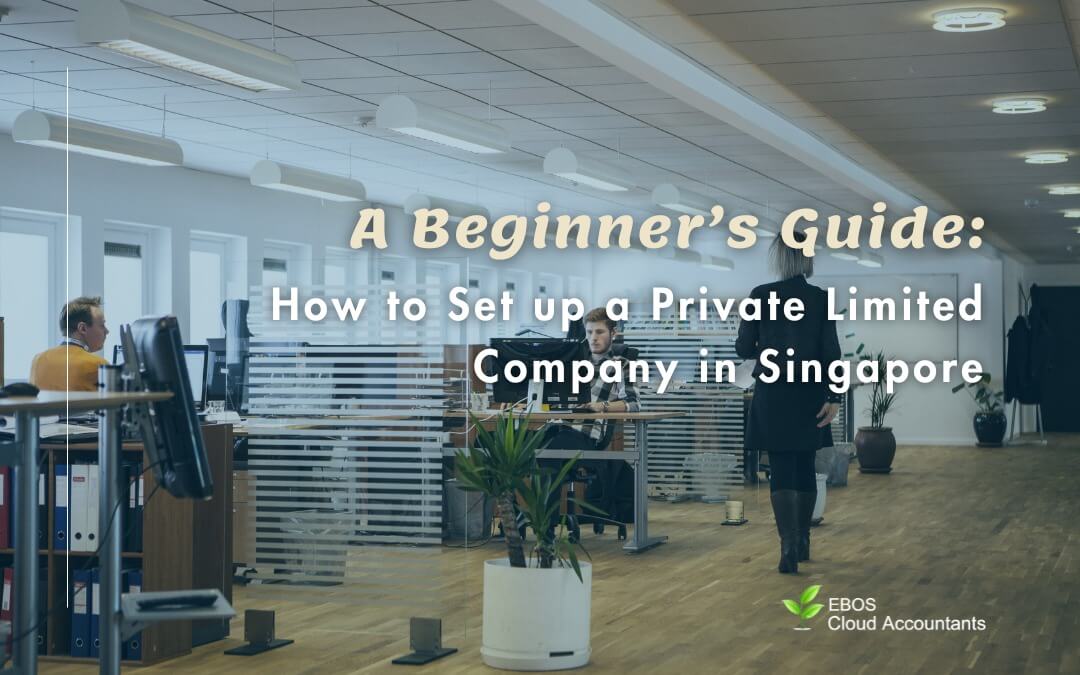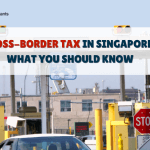All businesses in Singapore are required to adhere to the Companies Act and register with the Accounting & Corporate Regulatory Authority (ACRA).
Although there are five different business forms to pick from, a Private Limited Company is the most popular and adaptable business structure that may be established in Singapore.
You require a simple guide to the company incorporation process to launch a business in Singapore. We can help you with every step of the incorporation procedure, which often only takes a few hours if all the required paperwork and information is provided in advance.
What is a Private Limited Company?
A private limited corporation is a separate legal entity from its stockholders and is constrained by shares. It is acknowledged as a separate taxable entity.
Therefore, beyond the value of their share capital, shareholders of a Singapore private limited company are not accountable for the firm’s debts and losses.
The following are the primary requirements for registering a private limited company in Singapore:
At least one shareholder, whether an individual or a company.
- A single resident director
- An office secretary
- Minimum S$1 in initial paid-up share capital
- A physical office location in Singapore
Please take note that in order to submit your online application on BizFile+, foreigners creating a private limited company in Singapore must work through a registered filing agent, such as a corporate services company.
Documentary Requirements for Singapore Private Ltd Company Registration
The following criteria and documents are required for company incorporation in Singapore:
Company Name
- It’s crucial to pick this wisely for brand development. For this reason, try to incorporate your company’s activities into the name itself.
- A proper web address is now a requirement for growing a business, so it is also advisable to see if your selected company name corresponds to a domain name that is already taken.
Description of Business Activities
- Choose the commercial activities that your company will be involved in using the Singapore Standard Industrial Classification Code (SSIC) 2020.
Shareholding Pattern
- A Singapore Private Limited Company must issue one or more subscriber shares to its founding members when it is incorporated.
- It might raise capital by issuing more shares. The total number of shares in the company multiplied by the nominal value of each share results in the issued share capital of the company.
- A Singapore business can be registered with as little as S$1 (or its equivalent in any other currency) in paid-up capital. Paid-up capital is essentially the number of shares that have been issued by the corporation and fully paid for.
Shareholder’s Agreement
- It’s crucial to have a proper shareholders agreement in place. The relationship between the shareholders is outlined in this agreement, along with each shareholder’s rights and responsibilities.
- If you are the primary mind behind the idea, it is usually advisable to safeguard your interests and have “controlling rights” in the company.
Shareholder’s Details
- There must be a minimum of one corporate or individual stake. A director and shareholder may be the same person or distinct people.
- 100% local or foreign share ownership is also permitted. A private limited corporation may only have up to 50 shareholders.
Director’s Shareholder
- At least one director of the business must “ordinarily” reside in Singapore. Examples of such directors include:
- Singapore citizen
- Resident in Singapore permanently
- A person whose residential address is in Singapore and who has an employment pass, entrepreneur pass, or dependents pass
Registered Office Address
- A registered address is necessary for the incorporation process in Singapore. The address should be used for all business correspondence. The registered address must be a physical address and cannot be a P.O. Box.
- The use of residential addresses is allowed for certain types of business.
Company Secretary’s Particulars
- Every private limited company must name a Company Secretary within six months of incorporation. In addition to being in charge of making sure of all regulatory compliances, he or she must possess the necessary domain knowledge.
- In Singapore, most businesses hire experts in business incorporation to handle the necessary company secretary requirements.
Appoint an Auditor
- If the company is not exempt from the audit requirements, it must appoint an auditor within three months of incorporation for all Singapore-incorporated businesses.
- For the previous two fiscal years, the corporation had to meet at least two of the following three requirements to be exempt:
- There must be more than 50 employees overall.
- Its annual turnover cannot be greater than S$10 million.
- Its entire net worth cannot be greater than S$10 million.
What Happens After Incorporation?
The following documents are issued in digital format once the private limited company has been effectively incorporated:
Company Business Profile
- ACRA will provide newly registered firms with a free business profile. This business profile is an electronic document that contains the entity’s business details.
- On payment of a small price, you may also get a physical copy of the company business profile.
Certificate of Incorporation
- An email from the Singapore Company Registrar verifies the company’s establishment.
- The Unique Entity Number (UEN), the government-issued standard identifying number given to every entity registered in Singapore, is also included in this document.
- A hard copy of the certificate of incorporation can be purchased if required.
Issuance of Share Certificates
- This certificate serves as evidence of share ownership and lists the number of shares that belong to each shareholder. The corporate secretary is in charge of issuing this certificate.
First Board Resolution
- This resolution is needed to make appointments of shareholders and directors in the company official.
Bank Account Opening Resolution
- A private limited business will require its own bank account because it is a different legal entity from its directors and stockholders.
- As a result, a resolution by the company’s board of directors authorizing the opening of the account and naming the account’s signatories is necessary.
Post-incorporation Compliance Requirements
Every Singapore company needs to fulfil these filing and compliance requirements post-incorporation:
Annual General Meeting (AGM)
- Every calendar year, a firm must hold an AGM, at which its financial results must be presented for approval by shareholders.
Annual Returns (AR)
- Every company must file its annual returns within one month of its AGM date.
Corporate Tax Filing
- Every year, November 30 is the deadline for submitting company income tax reports. Tax computations and audited or unaudited Reports are required documents.
Determining the Fiscal Year (FYE)
- In Singapore, each business must choose its financial year end (FYE), which is not required to be December 31.
- For new start-up businesses to qualify for tax benefits (75% tax exemption on the first $100,000 of normally taxable income for the first three years of operations), it is advisable to keep the company’s FYE within 365 days.
Start Your Singapore Private Limited Company With Expert Help
In conclusion, setting up a private limited company can be your best option if you’re thinking about launching a business in Singapore.
We hope that this guide has helped you gain a clear understanding of the procedures you must follow to achieve a successful incorporation as well as the procedure for registering a business in Singapore.
Planning to register your business in Singapore? EBOS Cloud Accountants will provide a free consultation to understand your business structure and requirements in a smooth transition. We will guide you on how to achieve the least impact on your existing business when you set up a new Company in Singapore.







